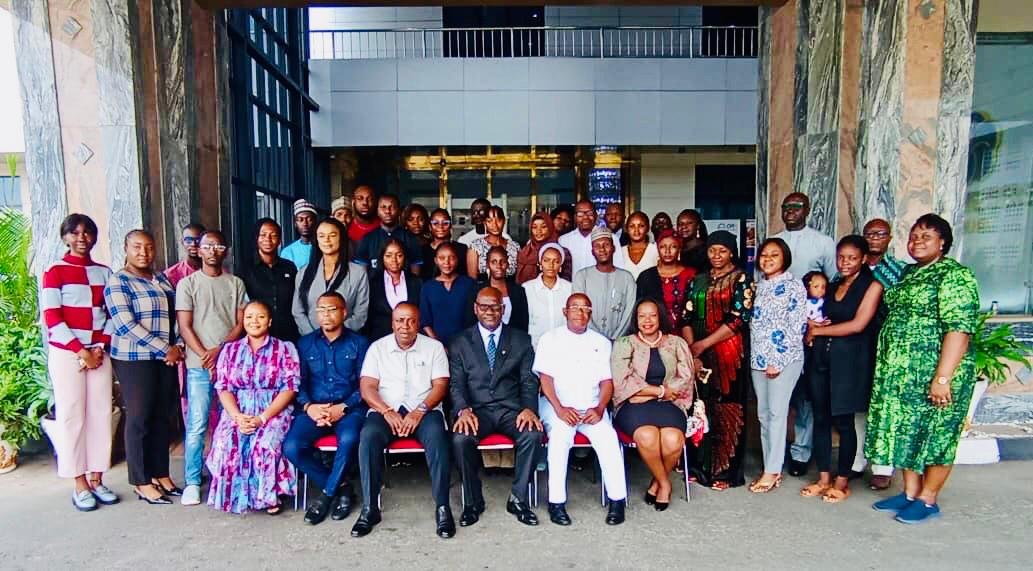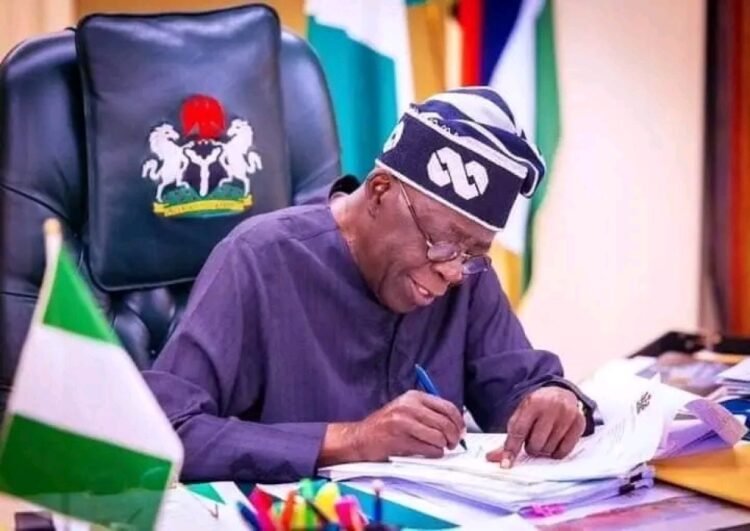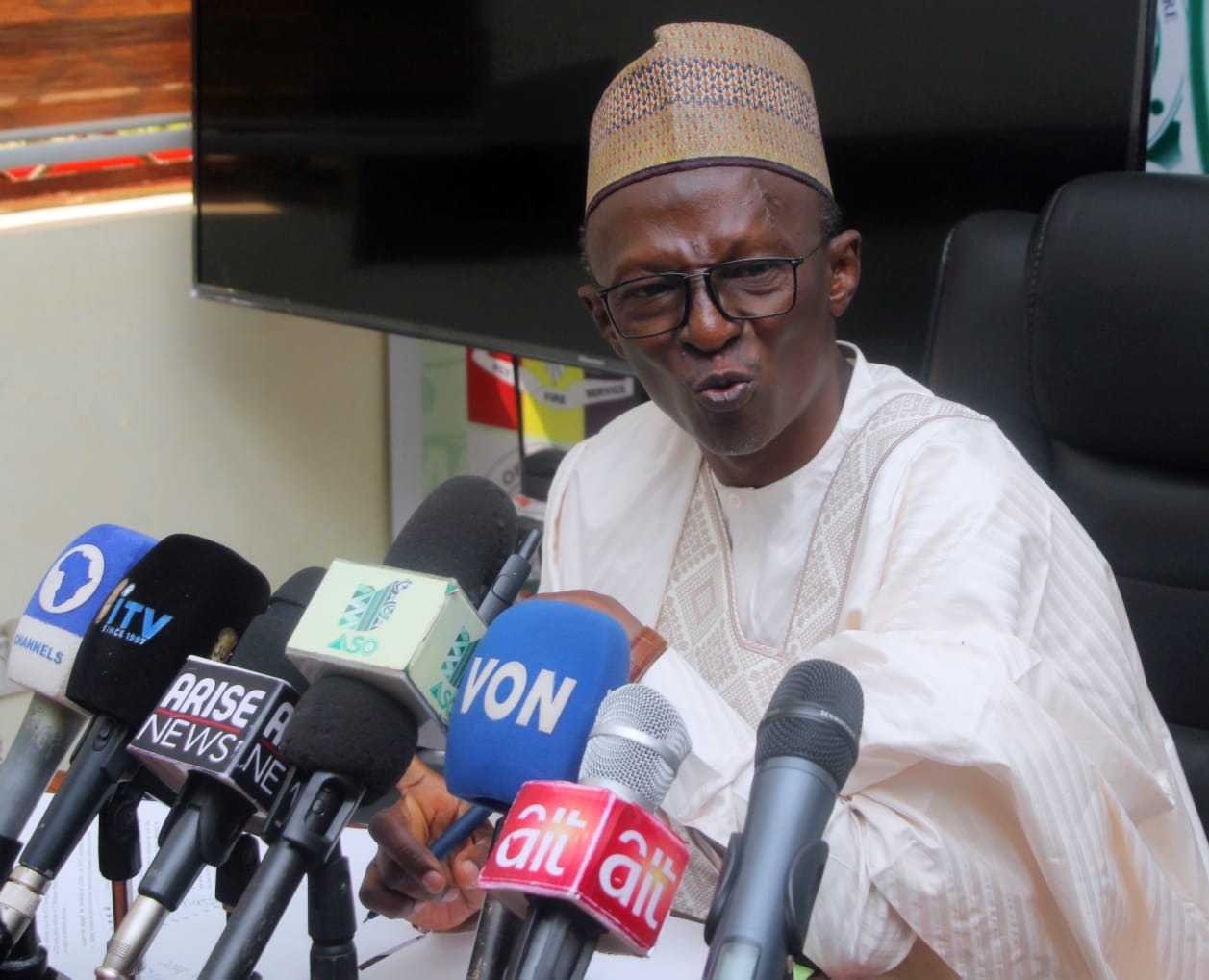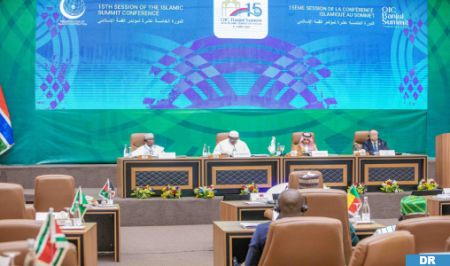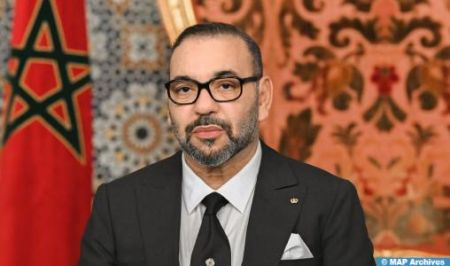787 total views today
A Network Of Traditional Leaders Is Helping Kaduna Communities Find Missing Children

Group picture of some traditional leaders at Rigasa ward,Igabi LGA, Kaduna State
By Aisha Gambo
Aisha Muhammed’s daughter was missing. Three-year-old Talatu (not real name) was nowhere to be found.
That cold realisation brought tears to Muhammed’s eyes. “At that time, I could not think straight, I was just crying and begging God to forgive me for my wrongs and bring back my only child,” she said.
Muhammed was expecting her daughter’s return on a Sunday morning. Talatu had slept over at her aunt’s house, a stone throw away from her own home in Rigasa area of Igabi Local Government Area (LGA) of Kaduna state. When she inquired on the phone about her child, she got the shocking news that Talatu went missing 12 hours ago.
Apparently, Talatu went outside to play with other children in the same compound but, unlike the others, did not return indoors after 6:00 pm. Five hours after a door-to-door search and she was still not found.
Muhammed remembered a report she had heard on radio about children stolen from their community and taken to another state or region for sale. This put her into more despair. “It was my mum that suggested we report the matter to the police station,” she narrated.
“So we all went to my aunt’s place and together we left for the police station where I reported the matter describing my child’s appearance and the time she was missing.”
A frightening trend
In recent times, there have been reports of missing children from the northern part of Nigeria on account of child trafficking. In some instances, they were located in southeastern Nigeria where they were renamed and sold.
For instance, in 2019, the Kano State Police Command arrested eight suspects involved in the kidnapping and trafficking of nine children. The victims, who were reunited with their relatives, aged between two and 10, were kidnapped from various locations within the state capital and trafficked in Anambra State.
What started as isolated cases of missing children in Kano State gradually grew to become a great source of concern as Kaduna State also recorded such cases with some suspected traffickers arrested.
In Sept. 2023, the police in Kaduna State had arrested four suspected child traffickers, Rahila Gajere, a retired social worker; Ngozi Peter, a nurse; Maryam Afaka; and Blessing Eze, in Zaria LGA.
During questioning at the police command, Afaka confessed to supplying Peter with stolen children and receiving payments ranging from N25,000 to N50,000 for each newborn from girls with unwanted pregnancies.
Some children are allegedly picked or lured by child traffickers who travel far to either sell or enslave them.
According to the latest figures shared by the International Committee of the Red Cross (ICRC), 64,000 cases of disappeared persons have been reported across Africa. In Nigeria alone, over 25,000 have been reported missing. Almost 14,000, more than half of the missing, are children.
Collaborations
The traditional institution comprising of a district head (Hakimi), village heads ( mai unguwa), area chiefs (sarkin unguwa) and other community leaders in Rigasa ward of Igabi LGA took it upon themselves to accommodate missing children found in the community pending when their caregivers come for them.
One of these traditional leaders is Salisu Sani, popularly known as Baba Zango, who is the (sarkin samarin gunduman Rigasa) youth leader of Rigasa ward. He was assigned by the ward’s district head, Muhammad Idris, to oversee the case of missing children and adults in the community through collaboration with the police, the area chiefs and village heads.

Salisu Sani, the Sarkin Samarin Gunduman Rigasa
“Almost every day, when parents who are searching for their missing children search everywhere to no avail, the moment they come to us, I immediately place a call to all the various village chiefs and heads; and with the help of God, the missing children are found and reunited with their parents.
“We have a very good relationship with the police and other security operatives; that is why they refer people who report cases of missing children or persons to us at the district head’s office,” Zango said.
When Muhammed reported that her daughter was missing to the police, the officer taking the report told her to meet Baba Zango at the district head’s office in Rigasa, saying he had the contact of all the village heads in the ward. When they did, Zango placed a call to the village heads in proximity to where her daughter went missing. Unfortunately, most of them said they had no one with Talatu’s description.
After several more calls and a request for one of the heads to check their Whatsapp platform on Talatu’s issue, Baba Zango later called a village head from another chiefdom. It was reported that two girls of the same age as Talatu were found in the evening and had spent the night in that village head’s home.
“We immediately went to the traditional head’s house to check if Talatu was one of the found children,” Muhammed continued. Fear, however, made her lag behind. She could not bare hearing a negative outcome.
But then, there was Talatu playing with the other girl in her company, unconcerned and unaware of her predicament. When she saw her family, she ran and embraced them.
That was not the end of the matter. The process did not work that quickly without some checks.
Muhammed was not allowed to take her child home because of a policy in the palace which stated that she would have to come with the father of the child or any respected man known by the palace.
Muhammed’s husband was out of town and she had not informed him about the situation because she feared he would blame her for being careless. So she called Baba Zango who came and stood for her before the child was released.
The Whatsapp group
“In the past, when a missing child was found in our community, we searched house to house looking for the parents. Sometimes we use the town crier to announce that a child is missing or found.
“Nowadays things have changed with the help of technology. We place calls to our colleagues to enquire about a missing child,” Mai Unguwa Yusuf Abisai said.
Abisai, who is the village head of Kutungare, Mashi Gwari village in Rigasa explained that they now have a Whatsapp group where issues related to missing children are treated with their pictures and names posted on the platform for easy identification.
This WhatsApp group has all the village heads of a particular chiefdom in the ward, alongside members of the palace. Other important information related to these villages were also passed in the online platform.
Abisai added that the Whatsapp group was created six years ago with each chiefdom in Rigasa ward having their own unique group.
“From January to date, we have found over 20 missing children who have been reunited with their families. Some spend some hours with us while others spend days.
“Right now I have two children under my care which I posted on the group; it turns out that one of the children’s parents had visited a colleague of mine searching for the child and she was referred to my house.”
Who takes care of the children?
The Children are taken care of by the village heads’ wives. They stay with the children before their parents or relatives come for them.
“We provide their feeding and our wives bath and cloth them for the number of days they are with us,” Shittu Abubakar who is the village head of Lokoja road, said.
“We don’t charge any fee from their parents for taking care of the children. But some parents usually give our wives gifts or money when they come to pick their children.”
Abubakar, however, lamented that some parents do not appreciate their effort and claim their children were playing outdoors and not missing.
Due process before release
When parents or caregivers find their child in a village head’s custody, they are required to follow some procedures before the child is released.
Abubakar explained that a form has to be filled by parents who come to pick their children in which they are required to write their name, address, phone number and other important details.

Sample of a form parents fill before their children are released
He added that the father of the child has to be present or someone known in the community, before a child is released.
“We don’t just give out children to anyone like that because one may claim someone else’s child. That is why we document information regarding the child and the parent.
“We also advise parents to be more careful while taking care of their children by cautioning them about leaving a small child outside alone with the excuse of playing,” he said.
According to the village head, some parents refuse to fill the forms and sign. They ask “don’t you trust me?” But after an explanation is given to them on the importance of keeping records, they oblige.
Due to the high population of the Rigasa community, certain persons opt to keep a missing child in their homes rather than take them to their village head. This causes delays in child-parents re-union, Abubakar revealed. There is also the lack of financial support from the government or non-governmental organisations for proper upkeep of such children.
“We feed and take care of these children from our personal purse, accommodating them in our homes because children are for everyone,” Abubakar said.(NAN)
***This is supported by the Solution Journalism Africa Initiative (Phase II) with collaboration of the Nigeria Health Watch.
***If used, credit the writer and the News Agency of Nigeria (NAN)




